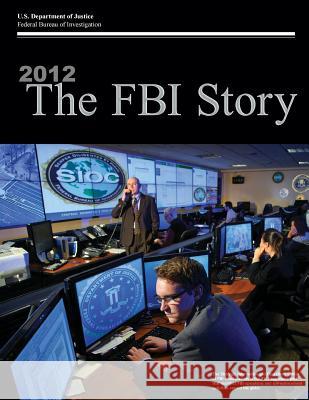2012 The FBI Story (Color) » książka
2012 The FBI Story (Color)
ISBN-13: 9781506191270 / Angielski / Miękka / 2015 / 120 str.
For the FBI and its partners, 2012 was a year that reminded us once again of the seriousness of the security threats facing our nation. During the year, extremists plotted to attack-unsuccessfully, thanks to the work of our Joint Terrorism Task Forces-the U.S. Capitol, the New York Federal Reserve Bank, and other landmarks on U.S. soil. Tragically, on the 11th anniversary of 9/11, a hateful attack in Benghazi took the lives of the U.S. Ambassador to Libya and three other Americans. In the cyber realm, a rising tide of hackers took electronic aim at global cyber infrastructure, causing untold damages. High-dollar white-collar crimes of all kinds also continued to siphon significant sums from the pocketbooks of consumers. And in Newtown, Connecticut, 20 young children and six adults lost their lives in one of the worst mass shootings in American history, ending a year of violence that saw similar tragedies around the country. Working with its colleagues around the globe, the FBI is committed to taking a leadership role in protecting the nation. As you can see from this book-an annual compilation of stories from the FBI's public website that provides a snapshot of Bureau milestones, activities, and accomplishments-we used the full range of our intelligence, investigative, and operational skills to address major threats during the year. We helped avert terrorist attacks and derail terrorist supporters, put cyber criminals and fraudsters behind bars, and dismantled violent gangs and organized crime groups. Today, as these pages make clear, protecting our country and our communities is truly a team effort. National security and law enforcement organizations are working together more closely than ever. At the same time, Americans from all walks of life can and do make a difference in solving and preventing crime and terrorism. Businesses can become aware of the warning signs of insider economic espionage (page 39). Community leaders can learn about such scourges as human trafficking (page 6). Consumers can get wise to online scams like the Reveton virus (page 66). Teachers can educate their students about cyber safety through our new Safe Online Surfing website (page 85). And citizens can contact us with tips and leads in our investigations, such as our search for a college student's killer (page 50).
Zawartość książki może nie spełniać oczekiwań – reklamacje nie obejmują treści, która mogła nie być redakcyjnie ani merytorycznie opracowana.











